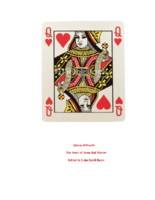Search the Special Collections and Archives Portal
Search Results

Transcript of interview with Priscilla Scalley by Claytee White, July 24, 2014
Date
Archival Collection
Description
Priscilla and Joe Scalley arrived in Las Vegas in 1972 with their two young daughters. Joe had just completed his residency in radiology and came to Las Vegas to practice at Sunrise Hospital, where he eventually became Southern Nevada’s first neuroradiologist. The couple took out two mortgages to buy their house at 2900 Justice Lane, in the Rancho Nevada Estates section of Ward 1. They were the second owners of the house, which had been built in 1967. In 1993, after their daughters had graduated from high school, the Scalleys sold the house and moved to Summerlin. Joe Scalley died in October 1994. After Joe died Priscilla became reacquainted with and married the father of one of her daughters’ childhood friends, Joel Jobst, who was also widowed. Joel was a nuclear physicist retired from the Nevada Test Site. Priscilla and Joel bought a vacation home in Montana, where they spent every summer. They celebrated 13 years of marriage before Joel passed in 2013. As a young mother Priscilla joined the West Charleston Elementary School Parent Teacher Association and eventually became president. She helped found the Friends of the Libraries when the Clark County Library District had only two libraries—Flamingo Library and West Charleston Library—and served as that group’s president. She also was active in Junior League of Las Vegas and was president 1983?84. In her early forties Priscilla became a travel agent, a career that kindled a passion for travel that still burns brightly. She also is interested in genealogy. Although she has traveled the world she yearns to take her daughters, sons in law, and grandchildren to Ireland, the land of her ancestors.
Text

Transcript of interview with Joe M. Wilcock by Claytee White, April 17, 18, & 30, 2014
Date
Archival Collection
Description
Chef and longtime gaming executive Joseph “Joe” Wilcock was born in Detroit and raised by his mother, Ruby, and stepfather, Ross Johnson, in Sarasota, Florida; Gary, Indiana; and Harlan, Kentucky. After he graduated from high school in Gary he moved to Chicago to attend Washburne Culinary Institute. While attending Washburne Joe worked at Chicago’s Drake Hotel and lived at the Sears YMCA. After earning his certificate from Washburne, Joe worked at the newly opened Holiday Inn in Chicago, the Sea View hotel in Bal Harbour, Florida, and a resort at Blowing Rock, North Carolina. At Blowing Rock he heard about the new School of Hotel Management at UNLV and in August 1969 23-year-old Joe headed for Las Vegas with $400 in his pocket. Las Vegas was a disappointment. Joe could not get a job as a chef without first joining Culinary Workers Union Local 226-which he could not afford to do. Also, because he ran a poker game and cooked at the Chuck Wagon Diner during high school his high school grade point average was roughly a C-, which hindered his admittance into the School of Hotel Management. Undaunted, Joe found a job bussing tables at the Frontier Hotel and joined the Culinary Union so he could work as a chef. He also took three classes at UNLV that semester, earned an A in each, and was admitted to the School of Hotel Management. While at UNLV he affiliated with Sigma Chi fraternity. In his career Joe has worked in all facets of the gaming industry in such Las Vegas properties as the Flamingo Capri, the Frontier, Caesars Palace, the Tropicana, the Dunes, the Golden Nugget, the Mirage, Treasure Island, the Sands, MGM, and the Downtown Grand. He learned the business from the ground up. He also worked at Caesars Tahoe and at different times owned and operated a sandwich shop and a bar. Joe married his wife, Linda, 38 years ago in Las Vegas, in 1976. He is currently employed as a casino shift manager at the Downtown Grand hotel and is affiliated with the House Corporation of Sigma Chi Alumni, UNLV Rebel Golf, the Las Vegas Natural History Museum, and Candlelighters Childhood Cancer Foundation of Nevada.
Text

Transcript of interview with Ernie Hensley by Lisa Gioia-Acres, Janurary 25, 2008
Date
Archival Collection
Description
Ernie Hensley, an accomplished African American musician, was born in Washington D.C. on March 14 1940, the son of Ernest W. Hensley Jr. and Gladys Barbara Hensley. Both of his parents worked for the federal government in the nation's capital. Ernest W. Hensley Jr., was an employee at the Department of Defense and Gladys Barbara Hensley mother, who was an excellent pianist and drum major, ultimately set her musical career aside to provide for her family and worked for the National Labor Relations board. At the age of seven, after finding a saxophone in his grandmother's attic, Ernie embarked on his musical journey. He took lessons at the Modem School of Music in Washington D.C. Eventually acquired proficiency with the clarinet and the flute through long hours of practice. Ernie attended a historically black school, Armstrong High School in D.C., until he was transferred to integrated McKinley High School in 1954 following the Brown v. Board of Education ruling. Ernie recalls his experience in a new desegregated environment. After High School in 1957, Ernie joined the Air Force as a member of the 511th Air Force Band. In 1959 he resettled in France to play saxophone for the Air Force Band. Emie ultimately made a career in the Air Force. He had countless experiences of performing around Europe and in Washington D.C. at places like Constitution Hall. A dream came true when Emie was honored to become a member of the "Airmen of Note," the premier jazz ensemble for the United States Air Force. He retired from the Air Force in 1979. Because of his distinguished career in the United States Air Force, Emie had a number of opportunities once he retired from the military. He moved to Las Vegas in 1979 at age 39 and after living in area for just a few weeks, Emie started working with Johnny Haig 3 nights a week. Shortly thereafter, Emie found a long-term home working with Jimmy Mulidore's group at the Hilton for nearly a decade until 1995. Throughout Ernie's lifetime he has been fortunate to work with notable musicians such as Andy Williams, Sammy Davis Jr., Somers, Juliet Prowse, Steve an Eydie and his good friend Sarah Vaughn. Emie, along with his wife Carolyn, a retired UNLV faculty member, still resides in Las Vegas.
Text

Transcript of interview with Charles T. "Blackie" Hunt by Cork Proctor, July 3, 2003
Date
Archival Collection
Description
Charles T. "Blackie" Hunt, born in Pottstown, Pennsylvania in 1930, started accordion lessons at age five. He recounts learning from experienced musicians, then teaching others at age twelve because his teacher was drafted. He attended West Chester State Teachers College where, among other accomplishments, he put together a group with Nick Carlino as tenor sax player. Blackie shares detailed memories of the many musicians with whom he worked and toured. They played in venues that included Harrisburg, Toronto, and Montreal, and eventually were offered a booking at the Sahara Hotel in Las Vegas. The group that Blackie worked with in Las Vegas, Tahoe, and Reno came up with the name "The Characters" (backward 'e'), and the show featured comedy and music. It was during this time that he met Lorraine (stage name Lauri Perry), who had her own group. They were married after a couple of years and Lauri joined The Characters. Blackie and Lorraine Hunt opened Blackie's Bar on Tropicana and Eastern Avenues in the seventies. He talks about the jazz sessions that took place and the musicians who sat in on them, and how he and Lorraine eventually decided to bow out of show business themselves. The Hunts went on to open the Bootlegger, a restaurant/piano bar on Las Vegas Boulevard. They started a little comedy/music session called "Off the Cuff', in which local or touring musicians, comedians, and singers often participate. Blackie and Lorraine have been part of the vibrant history of Las Vegas and the state of Nevada for many years, and continue to make their home here.
Text

Transcript of interview with Judy Jetter by Lisa Gioia-Acres, September 10, 2008
Date
Archival Collection
Description
Judy Jetter, a devout jazz music enthusiast, was born in a Chicago suburb in 1939. At the age of three, Judy began taking acting as well as tap and ballet classes. While raised by her mother until age 15 Judy was forced to study opera even though jazz music was her passion. Her first introduction to jazz came while listening to, legendary jazz great, Woody Herman on the radio. Judy developed an instant appreciation and love for jazz music. While working as a commercial actress during her childhood - Super Circus and Peter Pan peanut butter - Judy experienced live performances by the Stan Kenton Orchestra and was completely amazed. After graduation Judy was married and gave birth to her son. She worked for a movie studio in Chicago doing various jobs such as cleaning the stage, typing scripts, model work, and even playing the role of housewife. Later Judy went to college and earned a degree in psychology, which led to a job as a therapist. However, after remarrying to Bill Jetter, Judy switched careers and soon became an exercise instructor at the YMCA. There she cultivated her passion for working with people who suffered from disabilities. In particular, Judy developed a water regiment specifically designed for people with disabilities. Judy would go on to share her experiences in this field in two subsequent book publications. Unfortunately Judy's husband passed away with cancer. However, Judy found refuge and support from a group of jazz enthusiasts. Alongside her cadre, Judy began really studying how to listen to music. She moved to Las Vegas in 1992 and can often be found at different jazz venues throughout the city. She enjoys the local jazz scene in Las Vegas and making her weekly rounds to take-in Big Band and jazz singers such as Jobell and Terri James, as well as going to see Bruce Harper playing at Bugsy's, and the talented Gus Mancuso performing at the Bootlegger. Judy believes that music, like everything else, has evolved and will continue to mature; however, jazz musicians such as Louis Armstrong still remain as the foremost contributors in the long history of jazz music. Her hope is that music and the arts will continue to be offered through education to allow the next generation another "dimension to not only their education but their soul."
Text

Transcript of interview with Ann Clark Kanie by Lois Goodall, March 20, 2014
Date
Archival Collection
Description
Born and raised in Las Vegas, Ann Clark Kanie, elementary teacher, exemplifies the love of teaching in Clark County. Her mother, Marie Larson Clark Dane, taught elementary school at Lincoln Elementary School for 35 years. Ann attended Lincoln Elementary with her mother, Jim Bridger Junior High, Rancho, and then graduated from UNLV in elementary education. She also began teaching, like her mother, at Lincoln Elementary in North Las Vegas but later changed to Wasden Elementary which she obviously admires. Ann recalls growing up in Las Vegas and the fun that she and her friends enjoyed: participating in Helldorado Week, renting horses at Tule Springs or Old Nevada, riding bikes to the Meadows Mall and the Black Hole at the Springs Preserve, sliding down Becker’s Super Slide on Decatur Avenue, watching Disney movies at the Huntridge Theater, playing miniature golf and ice skating at Commercial Center, and going to Lake Mead and investigating the Potosi Mines. Ann married, continued teaching at Wasden. Her only son has chosen to follow his mother’s footsteps, graduated from UNLV in English education and teaches and coaches at Cimarron-Memorial High School. Even though she admits that teaching has become a very difficult, time-consuming job, it is obvious that Ann Kanie loves educating students and has passed this love on to her son.
Text

Ruth J. Kiley interview, January 24, 2013: transcript
Date
Archival Collection
Description
Rancho High School. Moved to Las Vegas in 1957 when she was thirteen. Ruth graduated from Rancho High School and worked with a variety of unions and casinos on their insurance claims
Text

Transcript of interview with Linda Lintner by Claytee White, February 12, 2013
Date
Archival Collection
Description
The daughter of a soldier, Linda Lintner and her mother traveled from North Carolina to Overton, Nevada to stay with Linda's grandparents when she was only six weeks old. After her father joined the family, they moved to Las Vegas where both her mother and her father started working at the Post Office. Linda attended local elementary and middle schools in the valley, and in due time, Rancho High School. In this interview, Linda shares not only her memories of growing up in Las Vegas but also fascinating stories about the almost decade long round the world sailing journey that she and her second husband began in 1986. In the course of the decade, Linda became a qualified diver, and expert sailor, and developed a lasting appreciation for the world, its oceans - and the skills you learn when you live on a boat with one other person for so very long. Since their return, Linda has been keeping busy, volunteering many hours with local veterans homes and the church - we are fortunate that she was able to spend time with our interviewer, too, to share her memories of growing up in Las Vegas.
Text

Transcript of interview with Anna Sipl Meyers by Leita Kaldi Davis, February 12, 2012, February 29, 2012, March 27, 2012, April 6, 2012, April 24, 2012, May 3, 2012, May 9, 2012, May 16, 2012, October 19, 2012, November 16, 2012, & December 7, 2012
Date
Archival Collection
Description
From concentration to ownership of Las Vegas casinos, Meyers owned the Cashbah and the and Queen of Hearts in downtown Las Vegas. Interview dates: 2/12/2012, 2/29/2012, 3/27/2012, 4/16/2012, 4/24/2012, 5/3/2012, 5/9/2012, 5/16/2012, 10/19/2012, 11/16/2012, 12/7/2012.
Text

Transcript of interview with Tony Scodwell by Lisa Gioia-Acres, September 29, 2008
Date
Archival Collection
Description
Tony was born the only son of the only son in Beloit, Wisconsin. Following his parents divorce when he was 12, he and his father went to live with his grandparents who, he admits, spoiled him. While neither of his parents played a musical instrument, Tony’s grandmother was a professional organist. In addition, Tony had an uncle who was a professional saxophone player and who was an inspiration to him. Tony’s dad was very supportive of his decision to learn trumpet and rented Tony an instrument, took him to his lessens, and sat with him while he practiced. Tony was firm in his convictions by the 9th grade that he was going to be a musician. Following high school, Tony was awarded a full scholarship to the Berklee School of Music in Boston which was a very prestigious music school. Tony repeatedly left school to go on the road which the school fully expected of their students. The last time he left the school he never went back. Tony states he got his degree on the road with experience from playing in bands like Stan Kenton, Tommy Dorsey, and with his idol Harry James. Tony took his career abroad when he took up residence in Cologne, Germany to play with a band there. Tony came to Las Vegas to play in a band with Buddy Rich which turned out to be of a shorter duration than he expected. Tony then played in Las Vegas and Reno for a time before going back on the road after realizing he preferred playing jazz on the road as opposed to playing in show bands. After eight years on the road, Tony returned to Las Vegas, got married, and settled down. Aptitude tests proved accurate when they showed Tony had a talent for things mechanical and metal as Tony went on to manufacture trumpets in addition to playing them. One can feel the love Tony has for his trumpets as he describes the process of creating them. After playing trumpet for almost 30 years, Tony decided it was time to concentrate on his photography for a while. Tony does not consider himself retired, but rather he likes to play, take pictures, and, of course, he practices the trumpet every day.
Text
